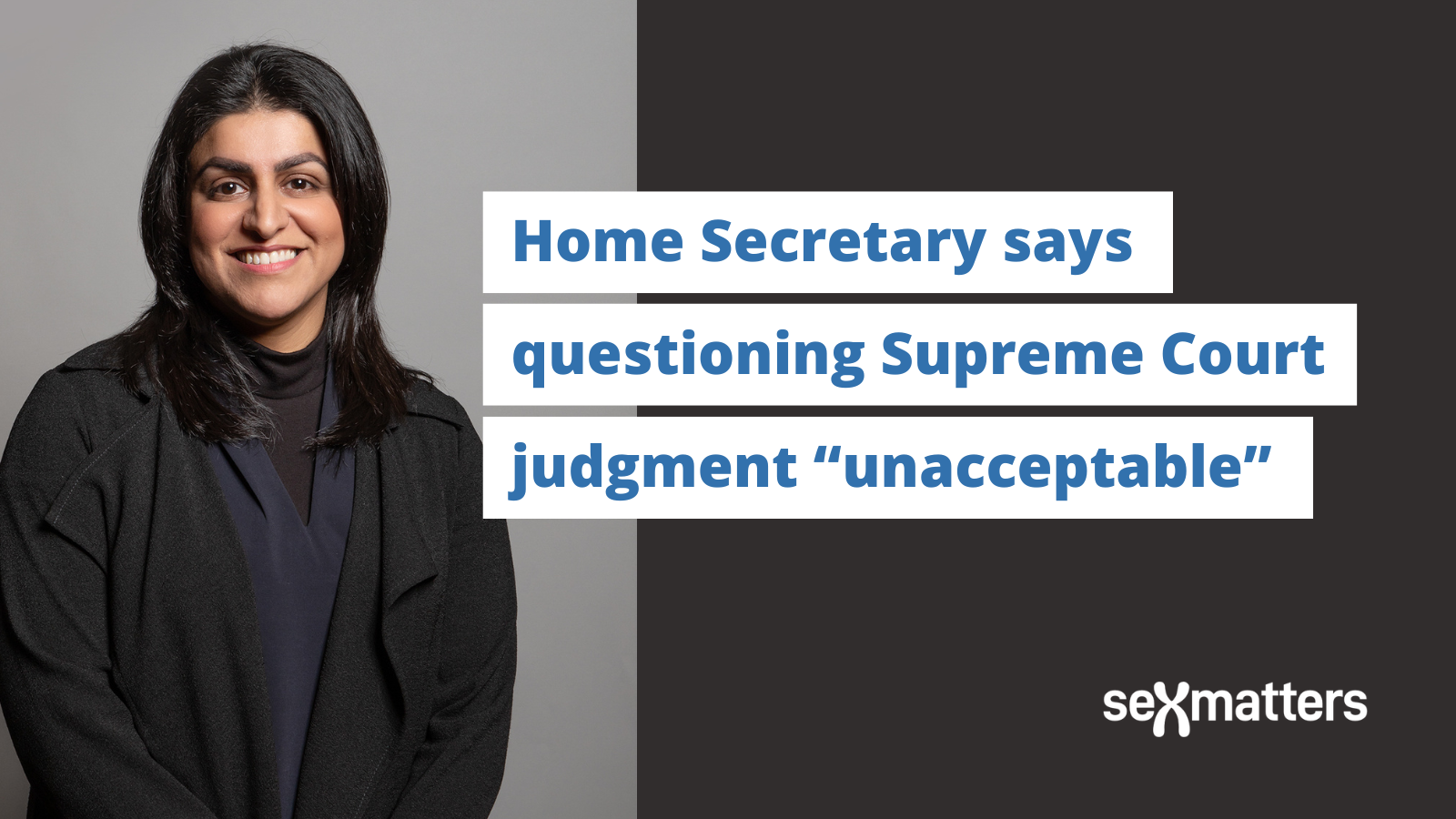The Home Secretary has strongly criticised Dr Michael O’Flaherty, the new Council of Europe Commissioner for Human Rights, for seeking to undermine confidence in the Equality Act and the Supreme Court’s interpretation of it.
O’Flaherty led the development of the Yogyakarta principles in 2006. This influential document, developed by a group of self-appointed experts, built on the UK’s 2004 Gender Recognition Act and demanded that other countries legally recognise a person’s self-defined gender identity without any medical treatment. It is not surprising that O’Flaherty disagrees with the Supreme Court, since the clear implication of its interpretation of the Gender Recognition Act is that the developers of the Yogyakarta principles over-interpreted it and neglected to consider the importance of a coherent system of protection against sex discrimination.
O’Flaherty began his six-year term as Human Rights Commissioner in April last year. This role means that he may submit written comments and take part in hearings in all cases before the Grand Chamber of the European Court of Human Rights.
On 3rd October he wrote to the Home Secretary and to the Joint Committee on Human Rights and the Women and Equalities Committee saying that the Supreme Court did not engage with human rights issues in its consideration of the interaction between the Gender Recognition Act and Equality Act in For Women Scotland.
Shabana Mahmood, the Home Secretary, has told him:
“I consider it unacceptable to question the validity of the Supreme Court in making this decision.”
Sex Matters sets out the human-rights arguments
In his letter, Dr O’Flaherty does not engage with the meaning of “sex” or use the terms “gender reassignment” or “protected characteristic”. These terms are at the heart of the Equality Act, and the Supreme Court’s judgment. As Mahmood points out, his claim that trans people’s human rights are not protected in UK law “does not accurately reflect the United Kingdom’s legal framework or operational realities”.
The Supreme Court’s judgment makes absolutely clear that working through tensions between the human rights of different groups depends on correctly defining and identifying what is meant by “man” and “woman”. It concluded that only when those terms have their ordinary meaning can the law be coherent and workable, and protect everyone against sex discrimination – and also protect people who are, or are perceived to be, trans from discrimination.
The judgment quoted the Employment Appeal Tribunal judgment in Forstater, which recognised that the Gender Recognition Act does not compel anyone to believe that a person has actually changed sex. It made clear that the Equality Act protects people from discrimination based on the sex that they are and also if they face discrimination or harassment in relation to being associated with or perceived as the opposite sex, as the recent case of Sophie Cole v Royal Mail demonstrates.
O’Flaherty raises concerns about legal uncertainty or dissonance “between the lived experiences of trans people and their treatment in law”. In fact, the Supreme Court gave careful consideration to “lived experience”, and concluded that women’s lived experience of being female is not something that is shared with men (including men who identify as transgender). At the heart of the judgment is the recognition that “shared biology leading to shared disadvantage and discrimination [is] faced by them as a distinct group”.
Flaherty also wrote that he is worried about “the exclusion of trans people from many public spaces”. The Equality Act protects people who are or are perceived as being transgender from discrimination on this basis in situations such as employment and services. But this does not give these individuals the right to access single-sex spaces provided for members of the opposite sex. The Supreme Court concluded that it would be impossible to justify or operate such spaces without clear rules about sex. Women using a toilet, changing room or shower are engaging in a “private act” under the Sexual Offences Act 2003, and their right to privacy is infringed if they are exposed (or put at risk of exposure to) unexpected members of the opposite sex. We have asked the committees to be robust in recognising that single-sex and separate-sex services protect everyone.
Professor Michael Foran and Athena Forum also wrote in response to the commissioner’s letter.
